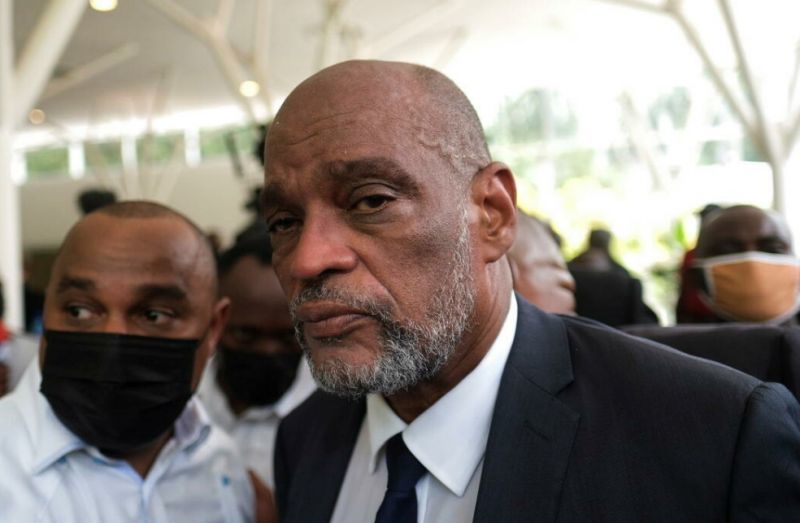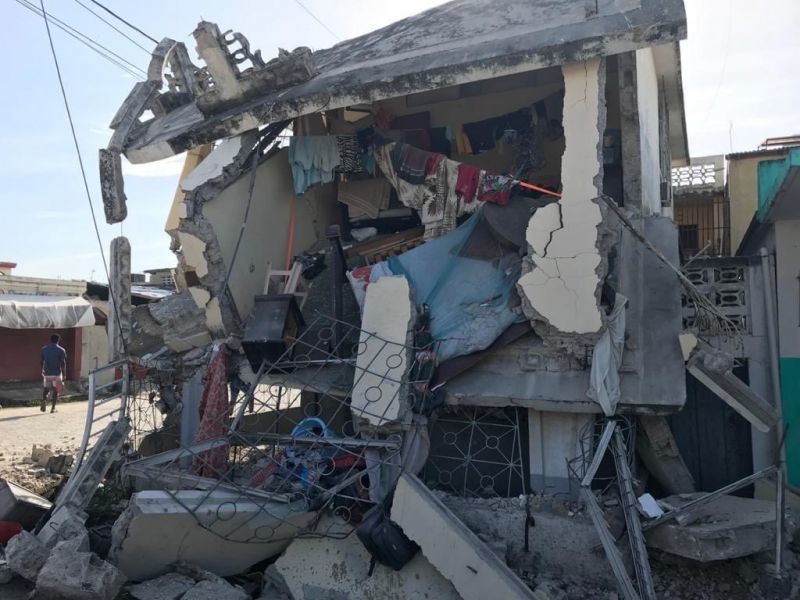
Magnitude 7.2 Earthquake strikes Haiti; multiple casualties feared
The earthquake struck 8 km (5 miles) from the town of Petit Trou de Nippes, about 150 km west of the capital Port-au-Prince, at a depth of 10 km and has sent shock waves across the Caribbean.
Early data is suggesting that today’s earthquake is potentially bigger and shallower than the magnitude 7 earthquake that struck Haiti 11 years ago, killing tens of thousands of people, flattening buildings and leaving many homeless.
Reuters is reporting that a U.S. Tsunami Warning System issued a tsunami warning after the quake, lifting it shortly thereafter, although Haitian media outlets reported some people along the coast had already fled to the mountains.
 Haiti’s Prime Minister Ariel Henry has
since said 'numerous' lives have been lost after the earthquake reduced
buildings and churches to rubble and rekindled painful memories of the
devastating 2010 tremor.
Haiti’s Prime Minister Ariel Henry has
since said 'numerous' lives have been lost after the earthquake reduced
buildings and churches to rubble and rekindled painful memories of the
devastating 2010 tremor.
'Numerous' lives loss - Haiti's Prime Minister
Haiti’s Prime Minister has since said “numerous” lives have been lost after the earthquake reduced buildings and churches to rubble and rekindled painful memories of the devastating 2010 tremor.
The United States, Great Britain, and France had promised millions in aid to the Earthquake ravaged Haiti, however, those countries fell short of the promise.
While the exact extent of today's damage was not immediately clear, the Prime Minister, Ariel Henry, who has been leading Haiti since Moïse’s killing, said there had been substantial destruction in several regions, and numerous fatalities.
“I extend my sympathies to the relatives of the victims of this violent earthquake,” Henry tweeted, as fears over the death toll grew.
 While the exact extent of the damage was
not immediately clear, the Prime Minister, Ariel Henry, who has been
leading Haiti since Moïse’s killing, said there had been substantial
destruction in several regions, and numerous fatalities.
While the exact extent of the damage was
not immediately clear, the Prime Minister, Ariel Henry, who has been
leading Haiti since Moïse’s killing, said there had been substantial
destruction in several regions, and numerous fatalities.
tremor fell across the Caribbean
The earthquake, which was felt across the Caribbean, including in the Virgin Islands, Cuba, and Jamaica, comes just over a month after Haiti’s president, Jovenel Moïse, was murdered at his residence in Port-au-Prince.
Haiti was one of the first black countries in the western hemisphere to gain its independence after colonialism and slavery from France.
A significant reason why the country has remained in poverty was due to Haiti having to pay France some 150 million francs equivalent to $21B in today's currency to preserve its independence.










